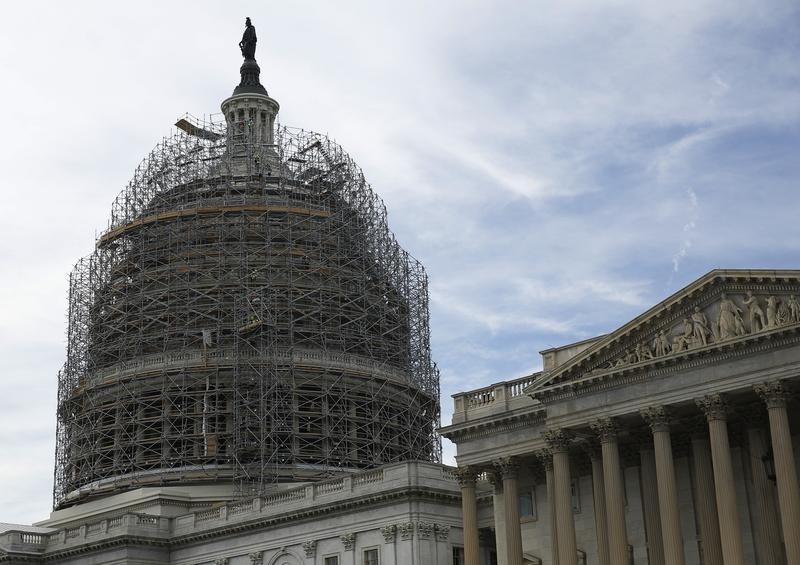By David Lawder
WASHINGTON (Reuters) - A massive bill that extends billions of dollars in tax assistance to businesses and expands the budget deficit won U.S. House of Representatives approval on Thursday in the closest thing to a grand bipartisan tax bargain in years.
Lawmakers voted 318-109 for the $622 billion measure, which is a step toward avoiding a government shutdown.
The bill now goes to the Senate, where it will likely be voted on together with a $1.1 trillion spending bill that must be approved to avert a repeat of a government shutdown in 2013 that damaged the U.S. economy.
The tax package was a major victory for corporate lobbyists and Republicans. It makes permanent dozens of costly corporate tax breaks such as the research and development tax credit that had until now have been temporary.
Middle-class Americans also benefit under the legislation. The bill offers aid to students, low-income parents, teachers and others, attracting support from the White House and House Democrats.
Republicans said the bill largely continues existing tax policy, but ends uncertainty for businesses and families by making permanent many tax breaks that previously had to be continually reviewed and renewed, sometimes for decades.
"With this bill in place, Americans will no longer have to worry each December if Congress will take action to extend certain tax-relief measures," said Kevin Brady, the Republican chairman of the House tax-writing committee.
Though it falls far short of the comprehensive tax reform that both Republicans and Democrats have sought for years, the package is a rare example of congressional action on a major economic issue. Passage of the deal was helped by the shrinking in recent years of the U.S. budget deficit.
Republicans, who control the House, smoothed the way for the tax bill by making it part of the wider agreement in Congress to prevent the government from running out of funding in the coming days.
The broader legislation includes a proposal to lift a 40-year-old ban on U.S. crude oil exports, a historic move that nevertheless would have little immediate effect on oil markets.
The House is due to vote on Friday on the deal's spending segment. Under a plan worked out in bipartisan negotiations, the legislation would be combined and voted on in the Senate the same day.
House Democratic Leader Nancy Pelosi warned she could not guarantee that enough of her members will back the spending legislation on Friday because it includes the oil export provision and offers no help for Puerto Rico in its fiscal crisis.
"We have serious unease in our caucus," Pelosi told reporters.
DEFICIT WORRIES
The congressional Joint Committee on Taxation estimated the tax provisions in the combined tax-and-spending deal would increase U.S. budget deficits by around $680 billion over 10 years compared to allowing the tax breaks to expire.
Some Democrats criticized the tax bill, saying it gives more aid to large corporations and wealthy business owners than to working families.
The largest and costliest component of the tax package is the business research and development (R&D) tax credit, which will cost $113 billion over a decade in lost government revenues.
The credit until now has faced periodic review as part of a list of "temporary" tax breaks known as the "extenders" that Congress has routinely renewed for years.
Like the R&D credit, other business tax breaks would be made permanent, including one on business depreciation, with a 10-year cost of $28 billion; one on "active financing" that lets businesses shelter profits overseas, costing $78 billion; and one on business expensing, costing $77 billion.
In addition, "extenders" items geared to middle-class Americans would also be made permanent, including the child tax credit, costing $87 billion; a tax credit for college students, costing $80 billion; and the earned-income credit for low-income wage earners, costing $30 billion.
